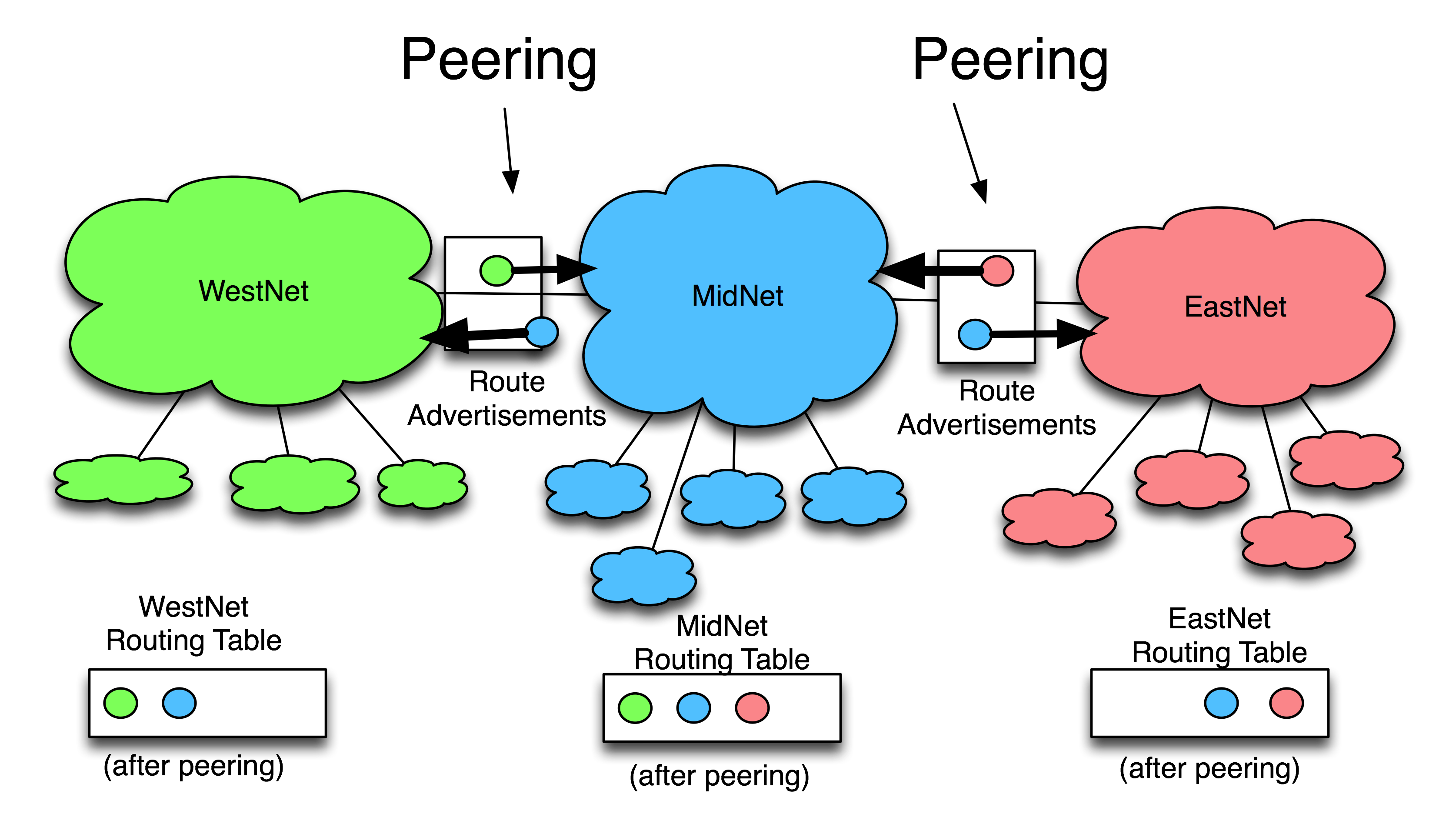Definition: Internet Peering is the business relationship whereby two companies reciprocally provide access to each other’s customers.
Internet Peering is typically settlement-free, meaning that neither party pays the other for access to each other’s customers, reflective of the underlying notion that peering is a relationship of approximately equal value to each party. Since both parties benefit about the same from the relationship, there is no need to bother with the overhead of measurement and settlement.
There is also no standard way to calculate and monitor the absolute value derived from a peering relationship. Is the value of the peering relationship proportional to the volume of traffic freely peered bi-directionally? Or is it proportional to the desirability or uniqueness of the routes? Or is the value the number of people reached?
For these and other reasons, the dominant form of peering is settlement-free. When you see the term “peering” from this point on, it means settlement-free peering.
To illustrate Internet Peering, consider the mini-Internet Peering Ecosystem shown in the figure below with only three ISPs: WestNet, MidNet, and EastNet.

Using graphical peering notation, we see that: